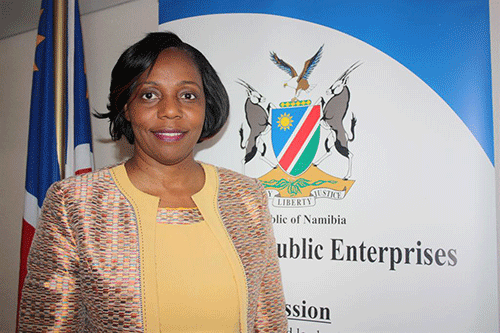State-owned enterprises (SOEs) board members last week failed to show up for compulsory induction training, with many of the new board members providing no reason for their absence. The training was organised by the finance and public enterprises ministry under the direction of the public enterprises department.
The required training had to be postponed, as only seven showed up out of 38 expected.
Deputy executive director in the public enterprises department Louise Shixwameni expressed her disappointment with board members, whom she said are not taking their work seriously.
“I am very disappointed by the turnout. We forwarded invitation letters to these board members, and some confirmed, while others chose to ignore. There are already complaints of accountability from our SOEs, and such acts are uncalled for,” she lamented.
Shixwameni noted the induction training is aimed to equip new board members with the necessary tools for affective corporate governance and inform them of what is expected of them.
According to her, only AgriBank board members provided an excuse for not showing up. Other board members expected were from Fisheries Observer Agency, TransNamib, Fischor, Namibia Sports Commission, Namibia Qualifications Authority and Namibia Training Authority.
Of the seven who showed up, four are from Namibia Training Authority, while three are from the Namibia Sport Commission.
Shixwameni emphasised the importance of the training, saying it is also meant to ensure members avoid conflicts of interest and comply with all corporate governance guidelines. According to her, there is low compliance from SOEs; thus, it is imperative to conduct the board induction training.
“Board members should make time for the jobs they applied for. In future, we will come up with measures to put in place to make sure board members act accordingly,” said Shixwameni.
In line with the Public Enterprises Governance Act 2019 (Act no. 1 of 2019), board members, as agents of the shareholder, are required to sign governance agreements that legally bind them to their fiduciary roles and functions. In this regard, Shixwameni noted, it is the prerogative of MFPE to induct the new boards of public enterprises to adequately oversee the landscape of governance in all its facets.
Over the years, SOEs have been questioned for their roles in corruption, nepotism, mismanagement of public funds and abuse of powers. In addition, government has drawn criticism for recycling the same board members in many SOEs, who seem to rotate from one public enterprise to another.
Business strategist Lelanie Basson believes participation at the orientation training for board members is essential for establishing effective governance and accountability in any organisation – not only public enterprises.
“It is alarming that only seven of the expected 38 board members were present. This could indicate that certain board members do not fully appreciate their roles and responsibilities, or they are not fully committed to fulfilling their duties,” said Basson.
Nonetheless, she advised it is crucial not to assume the worst and jump to conclusions. According to her, there should be a determination of the causes of the low participation rate and address any underlying concerns, particularly given that resources have been wasted in organising the now-postponed training.
Basson added it is a shared obligation to guarantee that public enterprises run with transparency, integrity and efficiency, saying “we must collaborate to achieve this objective”.
“I believe we should explore ways to involve the youth in the governance of our public enterprises. They represent a vital source of fresh ideas, energy and innovation that can help drive progress and transformation. This could help to bridge the knowledge gap and enhance the level of expertise and diversity on our public enterprise boards. We must invest in the development of the next generation of leaders to ensure a bright future for our county,” Basson advised.


